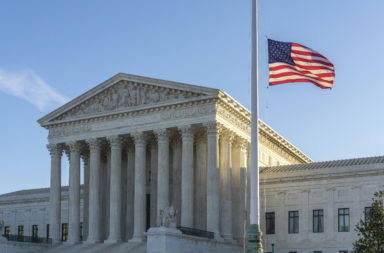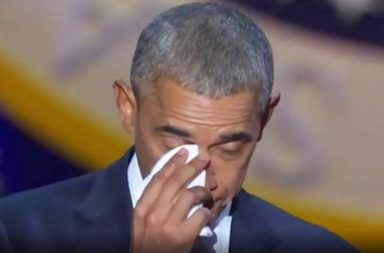Today President Obama appointed centrist appeals court judge Merick Garland to the Supreme Court. Garland would fill the seat opened by the death of supreme court justice Antonin Scalia. Scalia was deeply conservative and considered a hero by many on the right.
- Garland served as Associate Deputy Attorney General during the Oklahoma bombing case and supervised the prosecution of Timothy McVeigh
- He is known to be a centrist judge who leans toward the Democrat position on issues of regulation, and has often sided with more conservative opinions on issues of law enforcement.
- Senate Republicans have announced that they would not confirm any appointment made by Obama for the Supreme Court, arguing that the next president should make the choice. Garland, however, is widely respected even by Republicans and said to be a close friend of Chief Justice John Roberts, who was nominated by George W. Bush in 2005.
- Between 1995 and 1997 Garland had already been the subject of a court nomination fight, when Bill Clinton made him his candidate for the D.C. Circuit seat. He was first rejected by Republicans but eventually renominated and confirmed.
- If Obama is successful in appointing a nominee, it will cement his legacy far beyond the end of his term and tilt the court’s leaning towards the left.
- Obama twice before considered nominating Garland to the court, but chose Sonia Sotomayor and Elena Kagan instead. Then Mr Garland enjoyed the support of the same Republicans who are no determined to block his nomination.
President Obama made the formal announcement at a special event in the Rose Garden of the White House this morning.
In an previous press release President Obama issued
“Today, I will announce the person whom I believe is eminently qualified to sit on the Supreme Court.
As President, it is both my constitutional duty to nominate a Justice and one of the most important decisions that I — or any president — will make.
I’ve devoted a considerable amount of time and deliberation to this decision. I’ve consulted with legal experts and people across the political spectrum, both inside and outside government. And we’ve reached out to every member of the Senate, who each have a responsibility to do their job and take this nomination just as seriously.
Please join me in the Rose Garden at 11:00am Eastern for my announcement.
This is a responsibility I do not take lightly. In considering several candidates, I held each to three principles that reflect the role the Supreme Court plays in our democracy.
First, a Justice should possess an independent mind, unimpeachable credentials, and an unquestionable mastery of law. There is no doubt this person will face complex legal questions, so it is imperative that he or she possess a rigorous intellect that will help provide clear answers.
Second, a Justice should recognize the limits of the judiciary’s role. With a commitment to impartial justice rather than any particular ideology, the next Supreme Court Justice will understand that the job is to interpret the law, not make law.
However, I know there will be cases before the Supreme Court in which the law is not clear. In those cases, a Justice’s analysis will necessarily be shaped by his or her own perspective, ethics, and judgment.
Therefore, the third quality I looked for in a judge is a keen understanding that justice is not about abstract legal theory, nor some footnote in a dusty casebook. It’s the kind of life experience earned outside the classroom and the courtroom; experience that suggests he or she views the law not only as an intellectual exercise, but also grasps the way it affects the daily reality of people’s lives in a big, complicated democracy, and in rapidly-changing times. In my view, that’s an essential element for arriving at just decisions and fair outcomes.”
Judge Garland replied:
“Thank you, Mr. President. This is the greatest honor of my life — other than Lynn agreeing to marry me 28 years ago. It’s also the greatest gift I’ve ever received except — and there’s another caveat — the birth of our daughters, Jessie and Becky.
As my parents taught me by both words and deeds, a life of public service is as much a gift to the person who serves as it is to those he is serving. And for me, there could be no higher public service than serving as a member of the United States Supreme Court.
My family deserves much of the credit for the path that led me here. My grandparents left the Pale of Settlement at the border of Western Russian and Eastern Europe in the early 1900s, fleeing anti-Semitism, and hoping to make a better life for their children in America. They settled in the Midwest, eventually making their way to Chicago.
There, my father, who ran the smallest of small businesses from a room in our basement, took me with him as he made the rounds to his customers, always impressing upon me the importance of hard work and fair dealing. There, my mother headed the local PTA and school board and directed a volunteer services agency, all the while instilling in my sister and me the understanding that service to the community is a responsibility above all others. Even now, my sisters honor that example by serving the children of their communities.
I know that my mother is watching this on television and crying her eyes out. So are my sisters, who have supported me in every step I have ever taken. I only wish that my father were here to see this today. I also wish that we hadn’t taught my older daughter to be so adventurous that she would be hiking in the mountains, out of cell service range when the President called.
It was the sense of responsibility to serve a community, instilled by my parents, that led me to leave my law firm to become a line prosecutor in 1989. There, one of my first assignments was to assist in the prosecution of a violent gang that had come down to the District from New York, took over a public housing project and terrorized the residents. The hardest job we faced was persuading mothers and grandmothers that if they testified, we would be able to keep them safe and convict the gang members. We succeeded only by convincing witnesses and victims that they could trust that the rule of law would prevail.
Years later, when I went to Oklahoma City to investigate the bombing of the Federal Building, I saw up close the devastation that can happen when someone abandons the justice system as a way of resolving grievances, and instead takes matters into his own hands. Once again, I saw the importance of assuring victims and families that the justice system could work. We promised that we would find the perpetrators, that we would bring them to justice, and that we would do it in a way that honored the Constitution. The people of Oklahoma City gave us their trust, and we did everything we could to live up to it.
Trust that justice will be done in our courts without prejudice or partisanship is what, in a large part, distinguishes this country from others. People must be confident that a judge’s decisions are determined by the law, and only the law. For a judge to be worthy of such trust, he or she must be faithful to the Constitution and to the statutes passed by the Congress. He or she must put aside his personal views or preferences, and follow the law — not make it.
Fidelity to the Constitution and the law has been the cornerstone of my professional life, and it’s the hallmark of the kind of judge I have tried to be for the past 18 years. If the Senate sees fit to confirm me to the position for which I have been nominated today, I promise to continue on that course.
Mr. President, it’s a great privilege to be nominated by a fellow Chicagoan. I am grateful beyond words for the honor you have bestowed upon me.”





